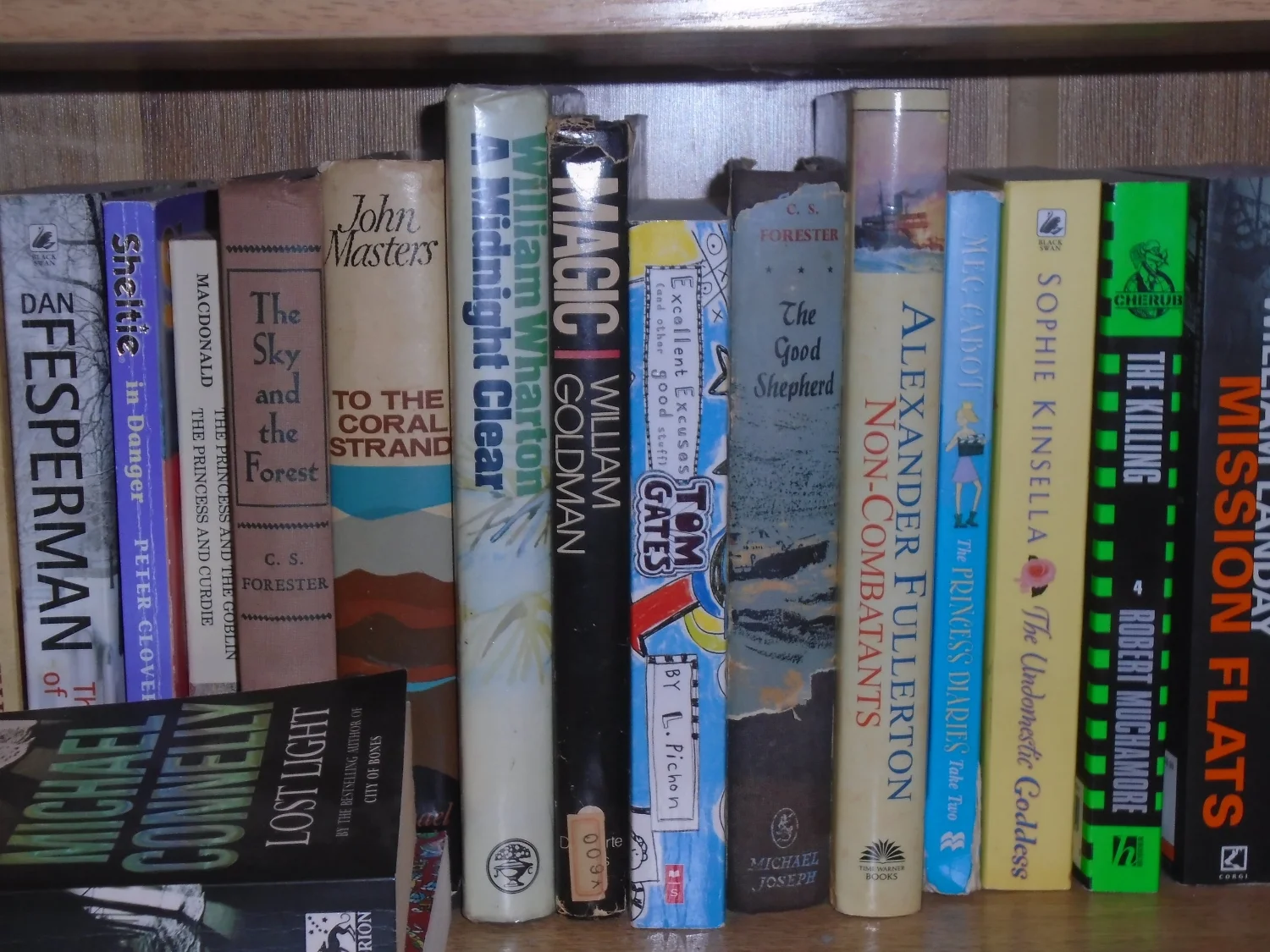WRITER'S BLOG
INTRODUCTION
Authors are always told to write what they know about. Well, I was an avid reader of thrillers and crime novels for decades before I ever tried writing my own.
First stab at shaping our tastes probably goes to our parents. My mother, Anabel Donald, tended to lean towards private eye and detective stories; my father, Miles Donald, was keener on thrillers and noir. So when I first dipped a toe in the crime and thriller waters, it was at ten or eleven, with Agatha Christie ferried to boarding school in stacks from my parents’ bookshelves; then, via my father’s lovely Nelson editions of John Buchan, some of the thriller giants of the Sixties and Seventies – Alastair Maclean, Desmond Bagley, Hammond Innes – in much-thumbed paperbacks plundered from second-hand bookshops and fêtes.
By the time I was thirteen my father had led me to Ed McBain’s 87th Precinct novels and Anthony Price’s brilliant blend of military history and contemporary spookery, while my mother’s burgeoning Robert B. Parker, Sue Grafton and Sara Paretsky habits soon hooked me too. Peter Lovesey’s Cribb novels started me down the avenue of historical crime fiction, and exploration of more exotic scenes of crime led past Arthur Upfield’s Boney novels and Martin Cruz Smith’s ‘Gorky Park’ to that perfect entrée to the everyday insanity of apartheid, the Kramer and Zondi books of James McClure.
A university house-mate lent me ‘Deadheads’, kicking off a longstanding enjoyment of Reginald Hill, and then a shared enthusiasm for Jonathan Kellerman’s psychologist detective Alex Delaware prompted her to steer me towards Ruth Rendell’s deeply unsettling standalone novels. (The police procedurals came later, after meeting Reg Wexford’s TV personification, George Baker, at a party.) Meanwhile another house-mate thought Tom Clancy’s fusion of gripping plots, insider detail and lumpy dialogue would be my thing (he was right); I returned the favour with Frederick Forsyth and Gerald Seymour. And when I graduated it was with the knowledge that I’d finally got the genius of Elmore Leonard. Since then I’ve found it hard to read fiction that doesn’t involve a chase or two or a murder or three.
The first half of the 1990s I think of as my historical thriller phase. My father gave me Philip Kerr’s first Bernie Gunther novel with a stern injunction – ‘Read it!’ – and my brother’s proof copy of ‘Fatherland’, found knocking around at his office, got me started on Robert Harris; Caleb Carr offered a different spin on two giants of the early twentieth century (ie psychoanalysis and Teddy Roosevelt).
An American ex-marine in Japan introduced me to the junkyard world of Andrew Vachss, while a literary agent’s dissection of ‘The Firm’ gave me a new perspective on the storytelling skill of John Grisham. PhD research into West African wars led to Robert Wilson’s ‘The Big Killing’ and a taste for his fiction that’s stayed through shifts in hero, place and time; when I returned from a UN job in New York I was accompanied by the intelligent military thrillers of Brian Haig and Gordon Kent, and (thanks to a Georgian colleague) a taste for Boris Akunin.
Marriage and fatherhood meant less time to trawl for the unfamiliar, and thus huge gratitude when I stumbled on classy authors with a long back catalogue and new novels I always seize on with glee; John Sandford, Alex Berenson, Dan Fesperman, Stephen Hunter, Lee Child, Henning Mankell, Martin Walker, Laura Wilson, Peter Temple, Garry Disher, Alan Furst, James Lee Burke, Robert Crais, Joseph Kanon, Dennis Lehane, Michael Connelly, Harlan Coben (bring back Myron Bolitar!), and above all Deon Meyer, Adrian McKinty and John Lawton. (Is there any way you three could write a little more quickly?)
Discoveries of the last couple of years include: Robert Wilton’s multi-layered historical spy novels; Mike Nicol’s seamy portrayals of South Africa’s Cape Flats; Luke McCallin’s conflicted Abwehr officer Gregor Rhinehart; Abir Mukherjee’s take on the Raj; Charles McCarry’s portrayal of Cold War espionage; and the blackly brilliant Slough House fiction of Mick Herron.
Writing thrillers doesn’t spoil the enjoyment of reading them, but it does add another level of insight to what’s happening on the page. There are a huge number of really talented authors out there; with a bit of luck my thoughts on writing and the reading it comes from will introduce novels and authors you may not have come across – and, implicitly, offer something of an insight into what makes this novice tick.
